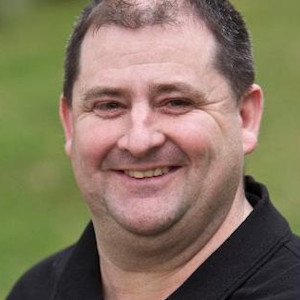On the road building of healthcare infrastructure: “It’s very similar economics is to road building. It’s the creation of infrastructure that enables exchange to happen. Everybody’s interested in a cheaper way to get from A to B. But not everybody’s interested in what is required to create a cheaper way to get from A to B.”
On how APIs impact the end user: “[Clinicians] are trapped in systems that they don’t feel bring value to them or their patients.”
“People have widely variable workflows. There is no single description of the workflow that worked for everybody.”
“With APIs it’s pretty hard to explain to most end users why APIs makes a difference. But if you focus on the outcome, which is better integration, better system wide flows of data and more mobility to customize their experience, then that story becomes compelling for a user.”
On how FHIR and crowdsourcing address mappings: “FHIR actually includes specific primary artifacts for dealing with crosswalks and mappings, and we’re investing as a community, in building the tools around them. But for the first time, part of the main specification of what we do is the ability to publish, share, review those crosswalks and mappings and to make the executable part of the overall frameworks.”
“We would like to set up a community that manages shared, public crosswalks between common coding systems. We have the infrastructure and the community is starting to think about doing that.”
“I’m a very strong believer in crowdsourcing when it comes to something like crosswalks and mappings. And the ability to use the crowd to refine the fine detail.”
On the growth of free EHR solutions: “There’s certainly going to be a growth of free EHR solutions. Of course, free is a misnomer, somebody’s going to pay someone for the implementation, perhaps with consulting fees.”
On data ownership: “There are people who argue that the patient should really own the data, but it’s not really the patient’s data. It’s not easy to tell [patient vs provider data] apart and that will continue to be a challenge for us. From a market perspective, the patient can only own the data if the patient pays to own the data. I do not see anyone considering that fact realistically.”
On security and privacy of patient data: “[A black market for healthcare] exists because having healthcare data increases your ability to get access to financial accounts.”
Today's Guest
Director, Healthcare Intersections
Grahame Grieve specializes in healthcare interoperability, balancing clinical, management and business perspectives, using his deep technical knowledge and capability.
Grahame Grieve specializes in healthcare interoperability, balancing clinical, management and business perspectives, using his deep technical knowledge and capability. Prior to his Healthcare Intersections consultant business, he was the CTO for Kestral Computing P/L, where he provided leadership in development methodology, strategic technologies, enterprise architecture, standards and interoperability. Grahame also conceived, developed and sold interoperability and clinical document solutions and products. As part of his work, he became deeply involved in healthcare standards, principally HL7 and ISO. For nearly a decade, he has used committee chair positions and editorship of key structural standards to lead convergence between US and European standards organizations.
Additionally, Grahame is involved in a variety of open source industry consortiums, such as Open Healthcare Framework, Open Health Tools and the Indy Project.
Our Interviewer
Datica Alumni — Former Chief Data Officer
Mark joined Datica to help bring healthcare forward into the new era of value-based care. He believes in the value of openness and transparency, but the importance of privacy and security.
